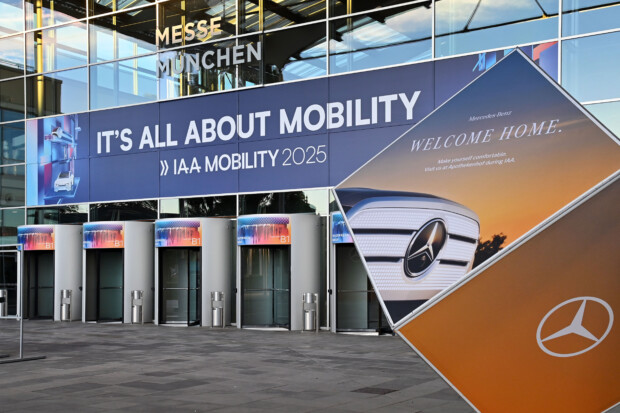电动化与智能化加速:中欧车企慕尼黑交锋
2025年慕尼黑车展(IAA MOBILITY 2025)在9月8日正式开幕,而在展会启幕前,路透社就以“It’s Europe vs China”为标题定下基调。本届展会不仅是汽车产品与技术的展示,更是全球汽车产业格局重塑的一次集中呈现。
欧洲厂商方面,宝马与奔驰率先行动,在车展前一周推出重磅新品。宝马发布新世代首款量产车型iX3,强调人工智能和电池技术的突破,并与多家中国科技公司展开合作;奔驰则全球首发基于新平台打造的纯电GLC,承载其“油电并行”的关键战略。在发布会上,两家企业高管均提及中国市场的重要性,认为在电动化与智能化转型方面需要借鉴经验。
与此同时,中国参展企业的数量和规模达到历史新高。据统计,在29家参展整车制造商中,有14家来自中国,首次超过欧洲本土车企。比亚迪、奇瑞、小鹏、阿维塔、深蓝、零跑等品牌集中亮相;宁德时代、中创新航、亿纬锂能等电池企业以及Momenta、大疆等科技公司亦集体参展,展现从整车到产业链、从电动化到智能化的系统性优势。
行业观察人士指出,这种趋势并非偶然。尽管欧盟已于2024年底对中国制造电动车加征关税,但数据显示,中国品牌在欧洲的市场份额仍持续攀升,2025年上半年已接近5%。麦肯锡预测,未来十年,中国汽车制造商在欧洲的市场份额可能追平日本和韩国。
长期以来,慕尼黑车展(前身为法兰克福车展)是欧洲汽车产业展示技术与引领潮流的重要舞台。然而近年来,面对转型压力、全球市场波动以及中国汽车产业加速“出海”,这一舞台已成为中欧双方检验战略与实力的关键场所。
本届展会的主题为“动悉一切”(IT’S ALL ABOUT MOBILITY),强调移动出行、可持续发展和技术创新。无论是欧洲车企的战略调整,还是中国企业的集体亮相,都表明全球汽车产业正进入新的竞争与合作阶段。如何在转型过程中实现平衡,将成为未来几年汽车产业的重要命题。
IAA MOBILITY 2025 officially opened on September 8 in Munich, but even before the event began, Reuters had already framed the narrative with the headline: “It’s Europe vs China.” This year’s edition is not just a showcase of vehicles and technologies—it reflects the ongoing transformation of the global automotive landscape.
On the European side, BMW and Mercedes launched early product reveals. BMW introduced the next-generation iX3, emphasizing breakthroughs in AI integration and battery technology, supported by partnerships with Chinese tech firms. Mercedes unveiled its all-electric GLC, a cornerstone of its dual-track “ICE + EV” strategy. Both executives acknowledged China’s growing role in shaping global industry trends.
Chinese participation reached record levels, with 14 of 29 global OEM exhibitors coming from China—surpassing European OEMs for the first time. Leading brands such as BYD, Chery, XPeng, Avatr, Deepal, and Leapmotor were joined by battery giants CATL, CALB, and EVE Energy, as well as technology providers like Momenta and DJI. Together, they showcased integrated advantages across electrification, supply chains, and smart mobility.
Despite EU tariffs introduced in late 2024, Chinese brands continue to expand in Europe, with market share approaching 5% by mid-2025. McKinsey projects that within the next decade, Chinese automakers may reach parity with Japanese and Korean brands in the region.
Long a symbol of Europe’s automotive leadership, the Munich Auto Show has now become a testing ground for both European legacy players and Chinese challengers. Under the theme “It’s All About Mobility,” the 2025 edition underscores the sector’s critical shift toward electrification, sustainability, and innovation. The balance between competition and collaboration will define the industry’s trajectory in the years ahead.

